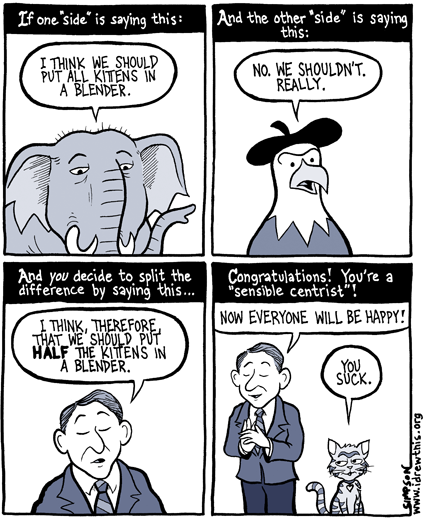This evening the GCSB Amendment Bill passed its third reading in Parliament, 61-59, despite a desperate last-minute campaign to persuade selected government MPs to cross the floor and vote against the bill.
I’m sure everyone involved would accept it was a long shot, a last-ditch effort after every other challenge had failed. But it shares some faults with the remainder of the campaign, and the left’s political strategy more generally, which has been marked by a lack of coherence and internal consistency, poor targeting, and seemingly more at shoring up support among activists than in extending that support.
Motivation
The merits of the GCSB issue were thoroughly thrashed out — the main problem is that it is an extremely complex topic about which few people have the expertise to make authoritative claims. Nevertheless, many of those people have made such statements, and the evidence is out there. This has been the strongest aspect of the “Stop the GCSB Bill” campaign more generally: its appeal to evidence.
But this was not a topic upon which government MPs were amenable to evidence. If they had been, they would surely have been swayed by testimony from the Law Society, the Human Rights Commission, and defence, security and IT experts including the former head of the GCSB itself. They were not moved by these appeals to evidence; not even slightly. They simply hold a different opinion on the merits of the GCSB Bill, one that happens to not be supported by the aforementioned experts (no doubt the PM provided another set of experts who gave them a counterview).
This is fundamentally because their motivation for passing the bill is ideological, not policy-oriented. National governments are strong on security. Whether they are or not, it’s part of their brand. They keep people safe, both at the day-to-day criminal level and at the level of transnational crime and terrorism. They are simply not willing to let some liberal bed-wetters prevent them from implementing a security system that better suits their petit-authoritarian worldview.
Hardening
Calls to cross the floor arose mainly from the left-liberal activist community. The biggest problem with calling on your ideological foes to cross the floor is that they’re your ideological foes. If they cared about what you thought, they wouldn’t be your foes, and they very likely would be amenable to changing their views based on the evidence, or at least to moderating them and cooperating.
But this is war. Not war on terrorism; war on the liberals, who are the real strategic threat to this government, and are ascendant in New Zealand’s left following the success of marriage equality, the continuing strength of the Greens, relative to Labour. In a war, when your enemies offer to parley, it is a sign of weakness, and nobody could mistake left-wing activists begging the Minister of Justice for a vote to sink a key plank of her government’s legislative agenda as anything other than a sign of desperation. In a war, when your enemies offer to parley, you only accept if you can’t crush them, see them driven before you, and hear the lamentation of their women. Hard ideological power is rarely vulnerable to moral suasion.
Trying to persuade individual MPs to betray their cause from a position of such ideological and strategic isolation was never likely to have any effect other than to harden their resolve, and to increase pressure on them from within their party to toe the line. In particular, given the vitriol to which certain MPs — notably Peter Dunne, hilariously regarded as being the most likely to switch — have been subjected in recent months, a sudden switch to flattery and appeals to better nature was simply incoherent and too jarring to be credible. Even a dog, if mistreated, will bite when petted. The fact that so much abuse continued even after the charm offensive began made it doubly ineffective.
In many ways this was a concentrated version of the overall strategy of moral and evidence-based persuasion: because support for the bill has been framed in a partisan way, there’s little point in convincing your own side. The task is to convince people who, for the most part, like John Key and trust his government that they are neither likeable nor trustworthy. It’s a hard thing to do — but doubly hard when your cause gets occupied by the Occupy movement, a point that Pablo made in one of his many excellent posts on this topic recently.
Target selection
Nine MPs were selected. Not to say that there were any actually good targets, but the selections misunderstand each MP’s place within the government machine.
The most obviously-idiotic target was Judith Collins, the Minister of Justice and probably the toughest authoritarian in government, including Key himself. Converting her was simply never a happening thing. National party newcomers Paul Foster-Bell and Claudette Hauiti were almost as laughable, given that their political careers exist only at the pleasure of the party.
Peter Dunne was probably the best target six months ago, except that he has since been subject to the greatest amount of vitriol over this issue. His relationship with the government has also been weakened recently, a bond he needed to renew, which he has.
John Banks, although personally of a nature similar to Collins, is vulnerable to his party machine which could possibly have been talked around — but the activist left thinks of him (and it) as being beyond liberal redemption, in spite of his voting in favour of marriage equality.
The others (Sam Lotu-Iiga, Melissa Lee, Jami-Lee Ross, and Nicky Wagner), were no worse than anyone else in the party.
Who do you love?
The only thing that gives a non-delusional Prime Minister in this data-driven age the sort of swagger John Key has is the knowledge that the polls are solid. There have been a few public polls: Research NZ; ONE News/Colmar Brunton; 3 News/Reid Research and most recently Fairfax/Ipsos.
Campbell Live’s unscientific, self-selecting plebiscite is barely worth a mention. So of these polls, only the last gives anything like a picture of an electorate that is closely engaged with this issue; it tells us three-quarters of New Zealanders do care about the GCSB Bill. But 75% on its own means nothing. Polls told us that 80% of the electorate opposed asset sales, and look how that worked out. This poll also tells us how much they care, and the answer is: only 30% are very concerned, and 25% aren’t concerned at all. More than half trust the government to “protect their right to privacy while maintaining national security”.
Key and his government will have much better polling than this, and broken down by party allegiance, too, and that’s important — Key would be perfectly happy to alienate 30%, or even 40% of the population as long as they’re all committed Labour and Green voters, and more than half overall still basically trust him. Key said people were more interested in snapper quotas than the GCSB bill, and he’s probably right — if you read that as “people who might actually vote for him.”
What was the performance in aid of?
The major effect of this campaign was to give the activist community something to believe in, a sense that they were Doing Something, rather than just sitting there while their freedoms got gutted. It was very much attuned towards focusing existing opposition, rather than towards expanding that opposition. (This was true to a lesser extent of the public meetings and mass rallies, which effectively church services, but these did also have an important role in disseminating evidence and bringing the discourse into the mass media).
The effect has been clear: there has been no effect. While opinion polling for the left has picked up in the last few days, it remains to be seen whether this will persist.
Although this one was poorly-executed I also don’t think a “cross the floor” campaign was necessarily a bad idea. Theatre matters. Morale matters. For all the criticism, there are many positives here. One is that people have gotten angry — even if it’s only a relatively small cadre of activists, that’s something we haven’t really seen much of recently. And there are some signs the discord may spread further (though not much further, as yet).
But while Do Something campaigns can be worthy in terms of making people feel better about losing, that is often all they are good for. They are often not very effective in terms of actually winning. This campaign worked well as a salve, but as far as effectiveness goes it was badly framed and focused on the wrong objective. It was both too partisan to draw in broad support from across the ideological spectrum, and then, later (once its ideological hostility was confirmed) began to treat the government as only a semi-hostile force that might be reasoned with. A less-ideological campaign to begin with, hardening into a more rigorous strategy as it became clear that the government would remain intransigent would likely have been more effective if it could have been stitched together (admittedly a big if).
Further, focusing on the bill’s passage was unrealistic. It was a fair enough interim goal, but more realistic is to focus on the repeal of the bill — now act — when Labour and the Greens are next in government, and to use it as a lever to assist them into government. Good progress has been made towards this as well, especially in securing what seems to be solid assurances of repeal from Labour, whose prior form on civil liberties has been very mixed.
What remains to be seen is if those involved can maintain momentum for another year. If they can, and this kicks off a 14-month campaign season, then it will have been a triumph, in spite of its tactical failure.
L


